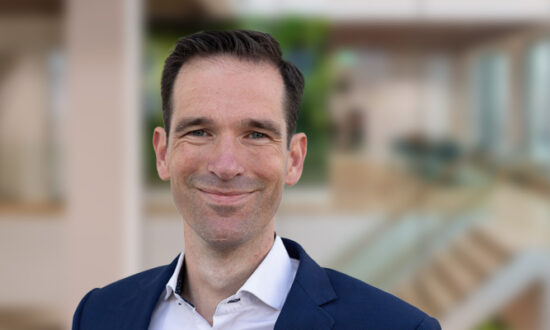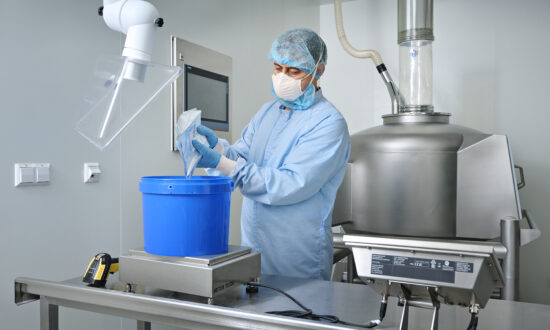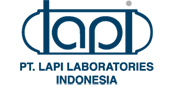Senior Scientific Educator Mariya Petrova: I want to make sure that my research is used to improve people’s health

As experts in the probiotics field, we attach great importance to sharing our knowledge in order to have a positive impact on people’s lives. However, comprehending the complex science behind microbiota and probiotics can be challenging. Driven by her passion to apply scientific knowledge in practical ways, Dr. Mariya Petrova, our senior scientific educator, plays a vital role in education and training. We are extremely happy to have people like Mariya on our team.
How did you become interested in microbiology and probiotics?
“I think the connection with my Bulgarian roots has been the driving force behind my journey. In my country, Bulgaria, fermented foods are simply a part of our life. Growing up, my dad would often ferment foods such as milk and vegetables at home. I was always intrigued by the whole process. I also learned about Elie Metchnikoff’s research on the benefits of Bulgarian yogurt and how it relates to longevity. What’s more, the first Lactobacillus (bulgaricus) was isolated from Bulgarian yogurt by the Bulgarian doctor Stamen Grigorov. All of this sparked my interest in microbiology and probiotics.”
Can you tell us a bit more about your scientific background?
“At Sofia University in Bulgaria I completed my bachelor’s degree in molecular biology followed by a master’s degree in microbiology, researching the antimicrobial activity of probiotics. Ever since then, I have been deeply committed to this field. I started my PhD in Bioscience Engineering at the Catholic University Leuven in Belgium. One of my main goals was to engineer probiotic Lactobacillus bacteria to produce active molecules against HIV, a challenging and innovative area of research. After completing my PhD, I continued as a postdoctoral fellow and was responsible for teaching, writing projects and articles, and supervising PhD students. It was really rewarding to see people that I supervised growing in their own career paths.”
What motivated you to take on the role of Senior Scientific Educator at Winclove Probiotics?
“Although I have always been driven by research, I came to the conclusion that my research needed to have more tangible applications and provide benefits to society. In the lab, I found myself deeply focused on studying individual molecules, often questioning their significance for human health. This perspective drew me to industry, where I realized the importance of practical application. I wanted to make sure that my research could be used to improve people’s health.”
What exactly is your role at Winclove Probiotics?
“At Winclove, I am responsible for sharing my knowledge with healthcare professionals, scientists, and business partners and bridging the gap between science and commerce. My role is to translate complicated science into more user-friendly language. The science behind microbiota and probiotics can be quite complex and technical. As a scientific educator, one of the biggest challenges I face is to communicate it in a clear and concise manner. To do so, we create e.g. moving storyboards and infographics to visualize the scientific knowledge. In this way we can ensure that our business partners fully understand the benefits of our probiotic formulations.”
I know you have a special interest in women’s health. Where does this special interest in women’s health come from?
“My interest in women’s health stems from my research on HIV during my PhD and postdoctoral fellowship. Non-optimal vaginal microbiota has been identified as a risk factor for acquiring various sexually transmitted infections, including HIV. Now we know the vaginal microbiota dominated by Lactobacillus species, especially Lactobacillus crispatus, are protective of and beneficial to women’s health. Women’s health is a key focus area for Winclove Probiotics as well. We are now involved in a unique research project that focuses on Lactobacillus crispatus in particular; women with healthy vaginal bacteria will culture their own vaginal bacteria in order to help other women improve their vaginal health. The aim of this project fits Winclove’s mission perfectly: improving the quality of people’s life”.
Winclove is a member of the International Scientific Organization of Pre- and Probiotics (ISAPP). Can you tell us about your role in this organization?
“ISAPP is a non-profit organization focusing on advancing the biotic field based on science. I have been an active member since 2015, serving in various capacities. Currently, as the senior industry representative, I represent Winclove, our business partners, and all the ISAPP member companies to the Board of Directors. This role allows me to attend exclusive meetings where esteemed researchers from industry and academia engage in science-driven discussions. Additionally, I contribute to scientific publications, including the recent one on probiotic safety assessment. This alignment closely corresponds to my own and Winclove’s shared motivation to effectively translate scientific knowledge into practical information.”
You also represent Winclove in the International Probiotic Association (IPA). What is the difference between the two?
“The International Probiotics Association (IPA), also a non-profit organization, plays a vital role in advocating for regulatory matters and promoting safe and efficacious use of probiotics. They possess the authority to engage with regulatory bodies such as Codex to influence regulations pertaining to probiotics and health claims.”
How does your involvement with these organizations help our business partners?
“Overall, our involvement with these organizations helps Winclove and our business partners to stay visible, be proactive, and help to move the field forward. By actively participating and providing guidance, I ensure that the concerns of our business partners are addressed. Worldwide, these organizations are actively increasing awareness of probiotics by promoting science and by creating an education platform for healthcare practitioners and consumers, and this in turn contributes across the board – to our collective goal of helping even more people with probiotics.”
How do you see the field of microbiology and probiotics evolving in the years to come?
“I believe that the field of microbiology and probiotics will continue to evolve towards improving the quality of life for as many people as possible. This will require effective educational platforms that communicate complex scientific concepts in understandable language. I also acknowledge the complexity of the human microbiota and the need for new techniques and technologies to better understand the exact role and modes of action of these microbial communities in human health. Overall, I believe that continued research and education will be key to advancing the field and improving people’s health and wellbeing.”
What makes working at Winclove Probiotics enjoyable?
“What I find enjoyable about working at Winclove Probiotics is the way people treat each other. They value and trust each other’s knowledge, and everyone is considered part of the family. Despite being a small company, colleagues are easily able to communicate with each other and form strong relationships. I really appreciate the fact that Winclove is transparent and honest about their research, even when the findings are not positive. This is a company that truly values improving people’s quality of life.”







